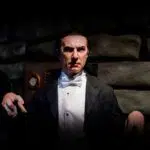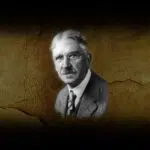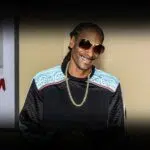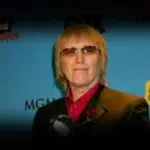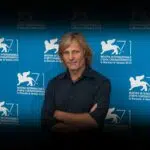John Dewey was born on October 20, 1859. He is an American psychologist, philosopher, and educational reformer. His concepts had a big influence on social and academic improvements. In addition to writing largely for publications, he also covered a wide range of subjects, such as experience, nature, art, logic, research, democracy, and ethics. Empiricism, humanism, naturalism, and contextualism — all related movements that influenced 20th-century thought — were greatly influenced by him. On the topics of pedagogy, philosophy of mind, epistemology, logic, philosophy of science, and social and political theory, he is among the top thinkers of his generation. Let us honor him.
Fast Facts
Full Name:
John Dewey
Birth date:
October 20, 1859
Death date:
June 1, 1952 (age 92)
Zodiac Sign:
Libra
Height:
5' 9"
Background
John Dewey was born in Burlington, Vermont. His mother is Lucina Artemisia, and his father is Archibald Sprague Dewey. He attended a public school in Burlington for his early education, which was largely based on life experiences rather than school books. At the age of fifteen, he received his diploma and enrolled at the University of Vermont. He studied philosophy under Henry Augustus Pearson Torrey, who had a major influence on him. After that, for a salary of $40 per month, he worked for two years as a Latin, algebra, and science teacher at a high school in Oil City, Pennsylvania.
Dewey went back to Vermont for the third year to work as an elementary school teacher in Charlotte. At the Johns Hopkins University School of Arts & Sciences, he completed his doctoral work under George Sylvester Morris. His first two books, “Psychology” and “Leibniz’s New Essays Concerning Human Understanding” were released during this time. In 1894, he accepted a seat at the recently established University of Chicago. He then extended an invitation to Mead and Angell to join him in establishing the Chicago Group of psychology. He then relocated to the East Coast in 1904 to become a professor of philosophy at Columbia University until his retirement in 1930. Despite his retirement, Dewey continued teaching until 1937.
He first met Harriet Alice Chipman in 1884, and the two later wed in 1886. They had six kids together, and she passed away in 1927. He then met Estella Roberta Lowitz Grant, a widow, and lifelong friend, while working at Oily City, Pennsylvania, and they were married on December 11, 1946. They stayed together till his passing in 1952. John Dewey passed away from pneumonia at his New York City residence on June 1, 1952.
Career timeline
Dewey begins his career as an assistant professor of psychology and philosophy at the University of Michigan.
While serving as an assistant professor at the institution, Dewey releases his first book, “Psychology.”
Dewey establishes the Chicago Group of psychology after leaving the University of Michigan to accept a seat at the newly founded University of Chicago and founds a school with his wife.
After having a conflict with the administration, he leaves the University of Chicago and accepts a position as a philosophy professor at Columbia University.
He stays in China until 1921, on the invitation to the University of Peking, Shanghai, and he teaches thousands of people in over two hundred lectures.
"Knowing and the Known," his final significant work, is published.
Why We Love John Dewey
He was a good educator
All his life, Dewey took good education personally. Dewey developed policies that are great for education and he devoted his life to teaching others and helping countries and communities to make good education policies.
He was excellent in his field
Dewey was a major contributor to the psychology and philosophy we have today. He did well in helping raise important questions and providing logical explanations for the field.
He was a humanist at heart
He took part in a range of political, social, and humanistic endeavors. He was a founding signatory of the 1933 “Humanist Manifesto I.” He fought tirelessly to strengthen democracy in civil society and in academic institutions.
5 Surprising Facts
He worked as a boy
Dewey worked as a boy delivering newspapers and at a lumberyard for pocket money.
He was fired from a teaching job
Dewey moved to Pennsylvania to accept a teaching position at a school, but was fired from it since the school's principal at the time was his cousin, who had retired.
He was a president of an association
Dewey was chosen to lead the American Psychological Association in recognition of his significant contributions to the discipline.
He was also invited by U.S.S.R.
Before the second world war, Dewey was invited to the U.S.S.R. where he visited schools because of his immense contribution to education and his policies.
Education was boring to him
As a young boy in school, the education curriculum was boring to him despite his intelligence.
John Dewey FAQs
What is John Dewey's theory of education?
John Dewey’s educational theory is called pragmatism, a discipline that prioritizes a naturalistic approach to knowledge.
What did John Dewey argue?
He emphasized the curriculum needs to apply to students’ daily life. According to him, practical life skills and learning by doing are vital to children’s education.
What is religion according to John Dewey?
Any endeavor that is undertaken to support an ideal objective despite hindrances and risks to one’s safety is because one is convinced of its universal and lasting value.
John Dewey’s birthday dates
| Year | Date | Day |
|---|---|---|
| 2025 | October 20 | Monday |
| 2026 | October 20 | Tuesday |
| 2027 | October 20 | Wednesday |
| 2028 | October 20 | Friday |
| 2029 | October 20 | Saturday |




